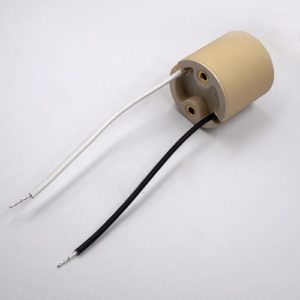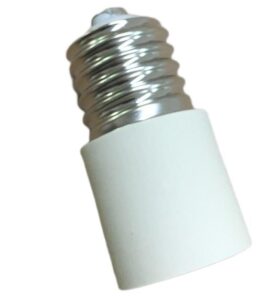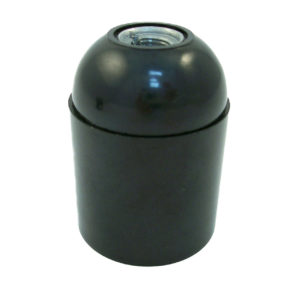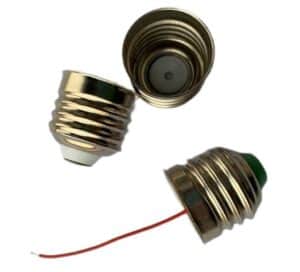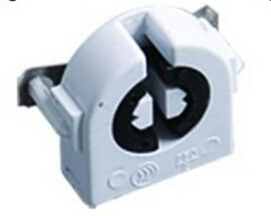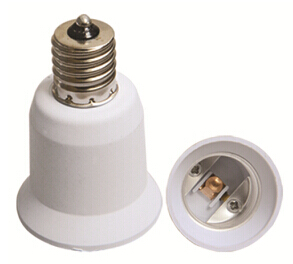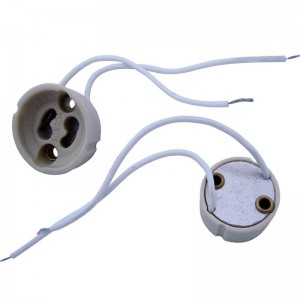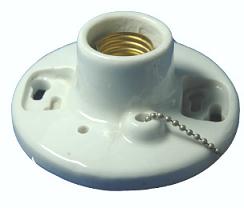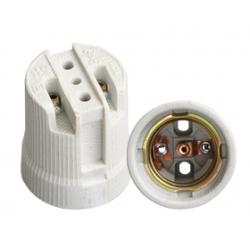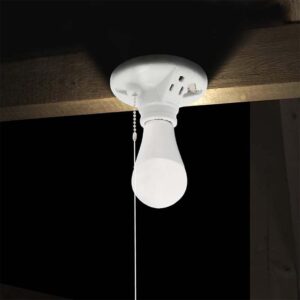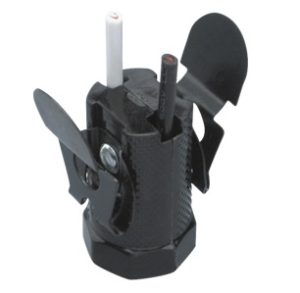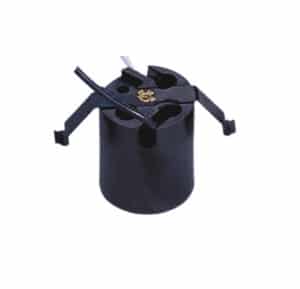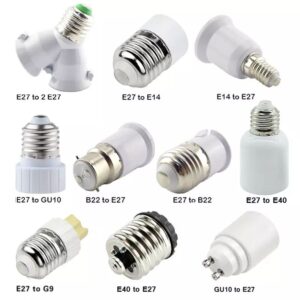Using a light socket as an outlet might seem like a good idea, but it can cause big electrical problems and fire hazards. Using it wrong can cause electrical problems, mess up your appliances, and make things unsafe. Understand why you shouldn’t use light sockets as outlets.
No, it’s not entirely safe to use a light socket as a power outlet. The wiring and the capacity of the light socket are typically designed for light fixtures. They have different power demands than your other electrical things.
Let’s talk about the problems this could cause and what you need to do.
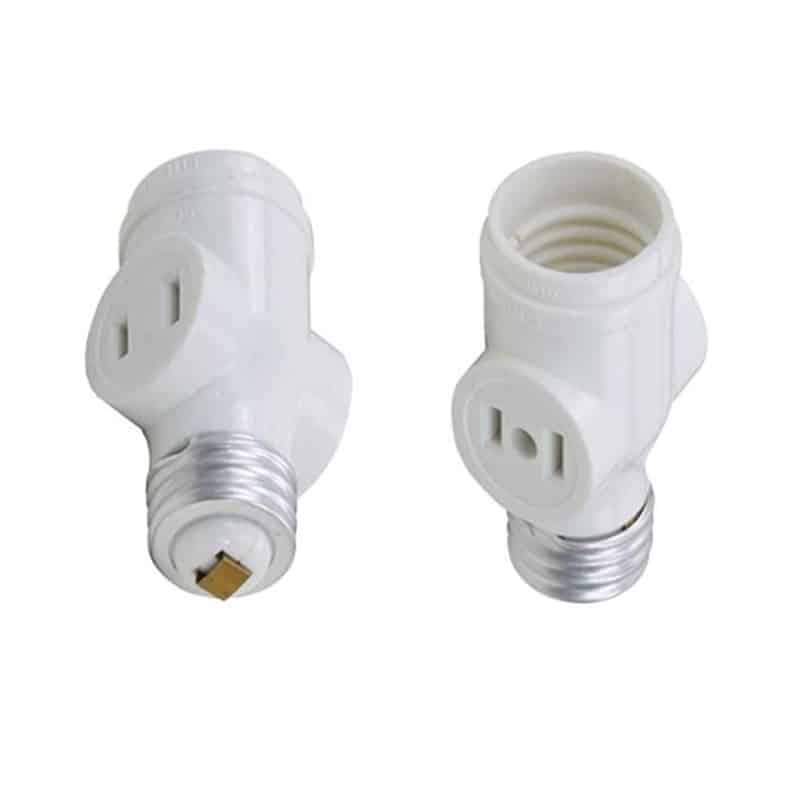
What is the difference between a light socket and a power socket?
Light sockets and power sockets are designed for different purposes. A light socket primarily powers light bulbs, which generally require lower wattage compared to many electrical devices. A typical light socket may handle between 60W to 150W, whereas power outlets are designed to accommodate a broader range of devices, some of which can draw significant power (up to 1800W or more for appliances).
While light sockets can sometimes be adapted to power low-wattage devices, their design isn’t meant to support high-energy loads like power tools or home appliances. Using an adapter to convert a light socket into a power outlet can result in overheating, leading to fire hazards or equipment failure.
Can you safely use a light socket plug?
Using a light socket plug adapter might work in low-demand situations, such as powering small devices, but it’s not recommended for anything beyond minimal loads. Socket adapters essentially convert the bulb holder into a two-prong outlet, but these light fixtures are not intended for the continuous or heavy electrical load demanded by appliances.
Even if it functions, this setup is generally not up to code and may cause serious safety risks. The wiring of the light socket may not be insulated or robust enough to handle the electrical flow of heavy devices, leading to overheating, melted wires, or even fire.
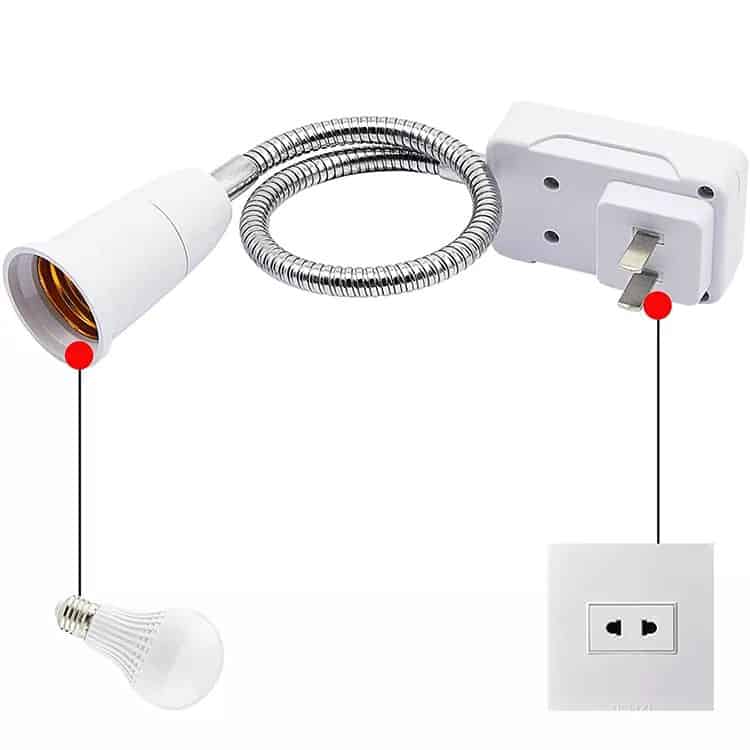
Can you run an outlet from a light fixture?
Technically, it is possible to convert a light fixture into an outlet by rewiring, but this should only be done by a licensed electrician. The wiring in the fixture must be compatible with the desired outlet’s load requirements. Light fixtures usually run on thinner wiring because they are designed to power low-energy bulbs. Rewiring for an outlet means ensuring that the circuit is protected by a proper fuse or breaker that can safely manage higher electrical demand.
This modification is not straightforward, and the potential for electrical hazards means it should be left to professionals.
How much power can a light socket handle?
Most standard light sockets are designed to handle around 60W to 150W, depending on the bulb type. If you attempt to draw more power than this through the socket using an adapter or converter, you risk overloading the wiring. This can cause the socket to overheat, leading to damage, potential fires, or blown fuses.
Devices like power-hungry appliances that require higher wattage should always be plugged into a dedicated power outlet designed to handle the load safely.
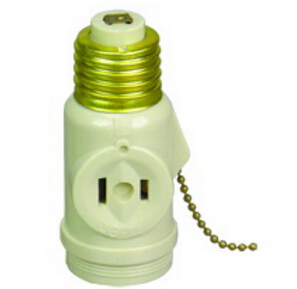
What happens if you stick a plug into a light socket?
Sticking a plug into a light socket using a socket-to-outlet adapter might seem like a quick fix, but it introduces multiple risks. First, the wiring behind a light socket isn’t designed to handle the fluctuating loads that power outlets are. This can result in power surges, which might damage both the device and the socket.
Additionally, light sockets are usually not grounded, which increases the risk of electric shock or fire when connected to modern appliances that require grounding for safety.
Are socket adapters safe?
Socket adapters can be safe when used appropriately with low-wattage devices like phone chargers or LED lights. However, for anything requiring substantial electrical power, these adapters are inadequate and potentially dangerous. Overloading a socket adapter can result in short circuits or fires.
It’s essential to understand the limitations of light sockets and to refrain from using them as power outlets for high-demand appliances.
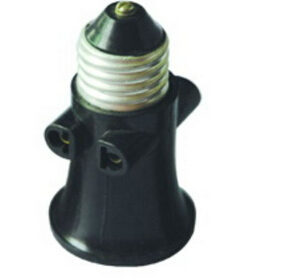
Can a light socket be converted to a plug?
Yes, light socket adapters are commercially available to convert light sockets into plug receptacles. While these are relatively simple to use, they come with significant risks if not used properly. These adapters are only recommended for low-wattage devices. Anything requiring significant power should be connected to a proper electrical outlet.
The conversion of a light socket to a plug is a temporary and potentially unsafe solution for more substantial electrical needs.
How long do light sockets last?
A properly maintained light socket can last many years, but the lifespan may be shortened if used improperly. Overloading a light socket, for instance, by converting it into a power outlet for devices that draw too much power, can quickly lead to its degradation. Frequent overheating or overuse can cause the socket’s wiring to fail or even result in dangerous arcing or fires.
The best practice is to use light sockets only for their intended purpose, with proper wattage bulbs, to ensure longevity and safety.
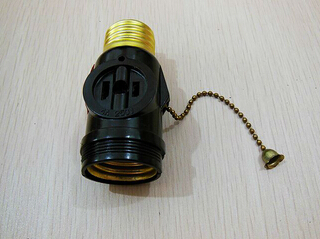
What is the safest power outlet?
Standard wall outlets, particularly those that are grounded and installed with circuit breakers, are the safest option for powering household appliances. Grounded outlets help prevent electrical shock and minimize the risk of fires caused by power surges. If necessary, using Ground Fault Circuit Interrupter (GFCI) outlets in areas prone to moisture (like bathrooms and kitchens) adds an extra layer of protection against electric shock.
Using power from a proper outlet, rather than from a light socket, is always the safest choice.
Final Words:
Using a light socket as an outlet is not safe for most things. Stick to the plugs in the wall to keep things safe in your house.

